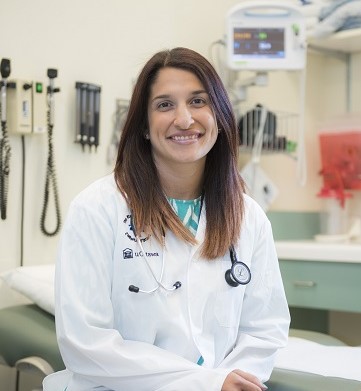CAR-T Therapy : Cancer Reprieve
CAR-T Therapy re-engineers T-cells so they can find and attack cancer. An inactive virus is used to insert genes into a patient's T-cells to create artificial receptors -- chimeric antigen receptors [CARs] -- on the surface of the cells which equip T-cells with the ability to recognize a protein on the surface of tumour cells and to launch a chemical attack against them. Designer T-cells infused during CAR-T therapy remain actively alert for years to guard against return of cancer. A revolutionary immunotherapy step forward in cancer treatment to leverage the power of the immune system in the destruction of cancerous cells.
 |
| Dr. Natasha Kekre |
"Without this trial, I don't think any of these patients would be alive today, so we are very encouraged by these results."
"The thing I want people to know is that we enrolled people who were incredibly sick. These are patients who had failed every line of therapy and didn't have a lot of time left."
"I think that's what will be our legacy, the fact that the newest products, the newest Canadian science, can actually reach patients because of this platform."
"As much as this has been about the science, it has also been a public health endeavour for me to make sure we create a sustainable, equitable future for CAR-T therapy."
Dr. Natasha Kekre, scientist, hematologist, The Ottawa Hospital
"I had a fairly mild reaction to the treatment. But then, lo and behold, at my checkup in early August, they said, 'Well, M. Snider, we don't see any lymphoma'. Thirty to 35 days later! It was amazing.""I feel good, I feel really good. I feel good about life because I have life.""Do you know what I mean? I got a reprieve.""All I know is it worked. I get to carry on with my life."Owen Snider, 75, end-stage cancer patient, CAR-T Therapy trial participant
A few commercial CAR-T therapies are approved for use in Canada, but their immense expense and limited access to certain types of leukemia and lymphoma mean the therapy is available to very few as yet. A CLIC-2 clinical trial recently concluded, headed by Dr. Kekre tested the efficacy of CAR-T therapy, the results aired by Dr.Kekre, the principal investigator of the trial at the 2022 Cell Therapy
Transplant Canada conference that took place in Niagara Falls.
Transplant Canada conference that took place in Niagara Falls.
Some of the thirty trial participants, the first to take advantage of the newly-established academic research network in the country able to produce modified T-cells critical to CAR-T therapy through inciting the immune system to act against cancer, had exhausted their treatment options for lymphoma and leukemia. They had, in other words, nothing to lose and everything to gain. Trial participants had T-cells removed and sent to a laboratory in Victoria to be genetically engineered to recognize and attack their bodies' cancers.
Modified T-cells were multiplied in the laboratory, then millions of the personalized, modified cells were returned to be infused back into the patients. The results were that 13 of 30 patients had gone into complete remission, with two experiencing partial responses, while five had no disease response from the therapy whatever. During the clinical trial that began in 2019, nine patients died from their cancers, and one from a common side-effect of CAR-T therapy; cytokine release syndrome.
Dr. Kekre found the results in the CLIC-1 clinical trial she headed to be as good, even improved upon, results attained in clinical trials for expensive commercial products; hers the first to modify and manufacture T-cells in Canada with the use of an academic network she had helped to establish as an associate professor at University of Ottawa. A simplified method of cell manufacturing is used by the network, that could make the treatment less expensive and ultimately available to a wider range of patients.
Labels: CAR-T Therapy, Clinical Trial, Research, The Ottawa Hospital CLIC-1

0 Comments:
Post a Comment
<< Home